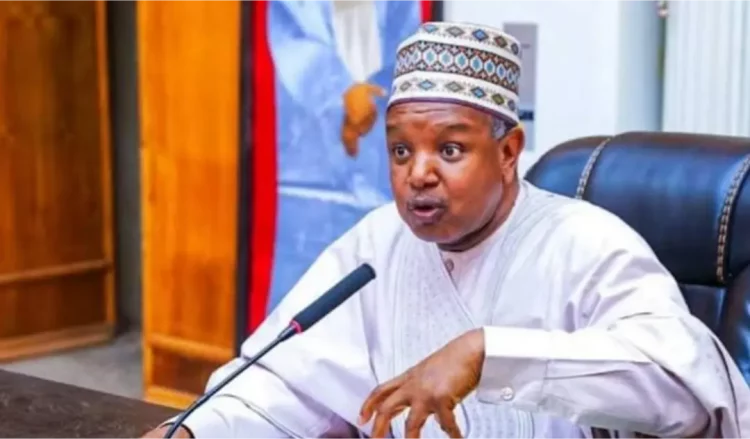The federal government has issued an apology to Nigerians for the economic hardships resulting from the reforms implemented by the Bola Ahmed Tinubu administration.
Minister of Budget and Economic Planning, Atiku Bagudu, made the apology during a Ministerial Sectoral Update in Abuja, acknowledging the pain caused by these necessary reforms.
Bagudu conceded that both the foreign exchange rate and inflation remain higher than desired, placing significant strain on the economy and citizens. “I apologize for the pains that they [policies] may occasion, but they are necessary,” he stated.
Since the beginning of Tinubu’s administration, the naira has devalued from around N460 to the dollar to a staggering N1,480, and inflation has surged to 33.69 percent as of April 2024, up from 22.22 percent the previous year.
Despite these economic challenges, Bagudu insisted that the administration’s “Renewed Hope Agenda,” which focuses on eight priority areas, is on the right track to stimulate economic growth. “Is our strategy right? Absolutely. We believe our strategy is right, but it requires occasional calibration,” Bagudu asserted.
He emphasized that restoring macroeconomic stability is essential for attracting investment and generating revenues to address underinvestment in crucial sectors such as security, education, and social welfare. “Nothing we do can solve the problem of underinvestment without restoring a macro-economy that can stimulate investment,” he said.
Secretary to the Government of the Federation, Senator George Akume, highlighted the administration’s significant strides in reviving the economy and implementing social programs during its first year in office. Speaking at the ministerial sectoral updates session, Akume noted Tinubu’s efforts to unleash Nigeria’s economic potential through major reforms.
“This administration has implemented significant economic reforms aimed at stabilizing our economy and fostering sustainable growth,” Akume said, pointing to policies that have attracted foreign investment and spurred job creation across various sectors.
One major economic move was the dismantling of monopolistic control over electricity through the 2023 Electricity Law, which allows states, corporations, and individuals to generate, distribute, and transmit power. On the fiscal front, Akume highlighted the removal of the contentious fuel subsidy as a “challenging but necessary” step to curb corruption, inefficiency, and reduce the annual fiscal burden on the government.
Infrastructure development has also been a key focus, with extensive road networks, improved rail systems, and modernized ports to facilitate trade and connectivity. Akume emphasized the administration’s people-focused policies, which include a variety of social intervention programs targeting poverty alleviation and the empowerment of vulnerable groups. “These initiatives have provided financial assistance, skills acquisition opportunities, and improved access to essential services,” he explained.
Investments have also been made in healthcare and educational reforms to boost human capital development. Despite facing numerous challenges, Akume commended President Tinubu for his “calm, unwavering commitment and resilience” in serving Nigerians with diligence.
Looking ahead, the administration remains committed to implementing its “Renewed Hope Agenda” focused on economic revitalization, social inclusion, and infrastructural progress for the benefit of all Nigerians. Akume called for collective efforts towards unity, peace, and realizing Nigeria’s full potential through the government’s vision and policies.

Leave a Reply